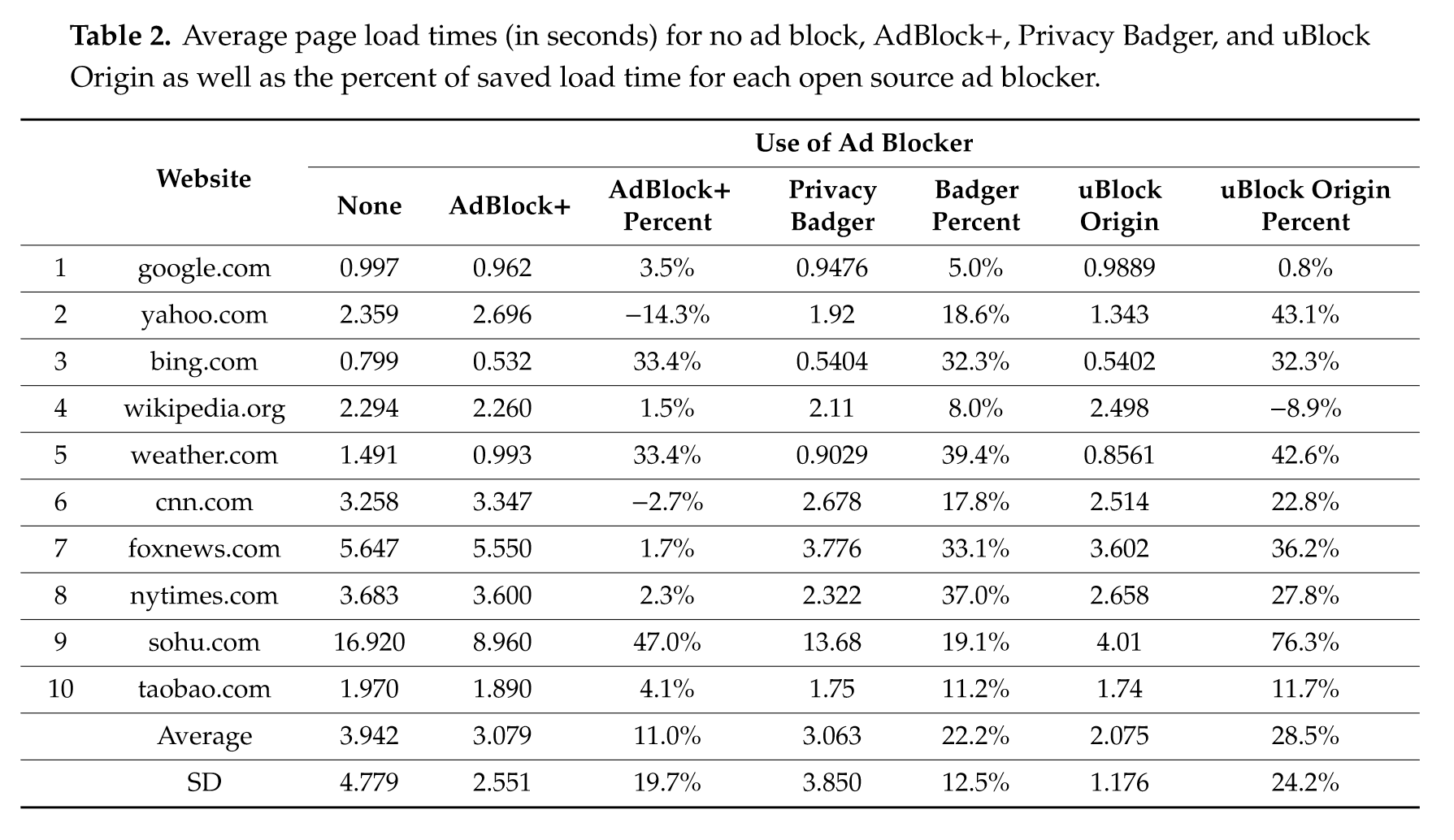Energy Conservation with Open Source Ad Blockers
Status:: 🟩
Links:: Energy consumption of advertisements
Metadata
Authors:: Pearce, Joshua M.
Title:: Energy Conservation with Open Source Ad Blockers
Publication Title:: "Technologies"
Date:: 2020
URL:: https://www.mdpi.com/2227-7080/8/2/18
DOI:: 10.3390/technologies8020018
Bibliography
Pearce, J. M. (2020). Energy Conservation with Open Source Ad Blockers. Technologies, 8(2), 18. https://doi.org/10.3390/technologies8020018
Zotero
Type:: #zotero/journalArticle
Keywords:: [⏳]
Relations
Abstract
Internet-related electricity consumption is rising rapidly as global Internet users spend more than 6.5 h per day online. Open source ad blockers have the potential to reduce the time and thus electricity spent using computers by eliminating ads during Internet browsing and video streaming. In this study, three open source ad blockers are tested against a no-ad blocker control. Page load time is recorded for browsing a representative selection of the globally most-accessed websites, and the time spent watching ads on videos is quantified for both trending and non-trending content. The results show that page load time dropped 11% with AdBlock+, 22.2% with Privacy Badger, and 28.5% with uBlock Origin. Thus, uBlock Origin has the potential to save the average global Internet user more than 100 h annually. The energy conserved if everyone in the United States used the open source ad blocker would save over 36 Americans lives per year if it were to offset coal-fired electricity generated-based pollution. In the United States, if all Internet users enabled Privacy Badger on their computers, Americans would save more than $91 million annually. Globally, uBlock Origin could save consumers more than $1.8 billion/year. Open source ad blockers are a potentially effective technology for energy conservation.
Notes & Annotations
📑 Annotations (imported on 2023-06-22#13:56:56)
Table 2 also shows the percent of saved load time for each open source ad blocker. The page load time dropped 11% with AdBlock+, 22.2% with Privacy Badger, and 28.5% with uBlock Origin, which provides sblock−x. Clearly, uBlock Origin has the greatest potential of the three open source ad blockers tested to save Internet users the most time.

Strikingly, uBlock Origin has the potential to save the average global Internet user more than 100 h annually. The energy conserved if everyone in the United States used an open source ad blocker would save over 36 Americans lives per year if it were to offset coal-fired electricity generated-based pollution.